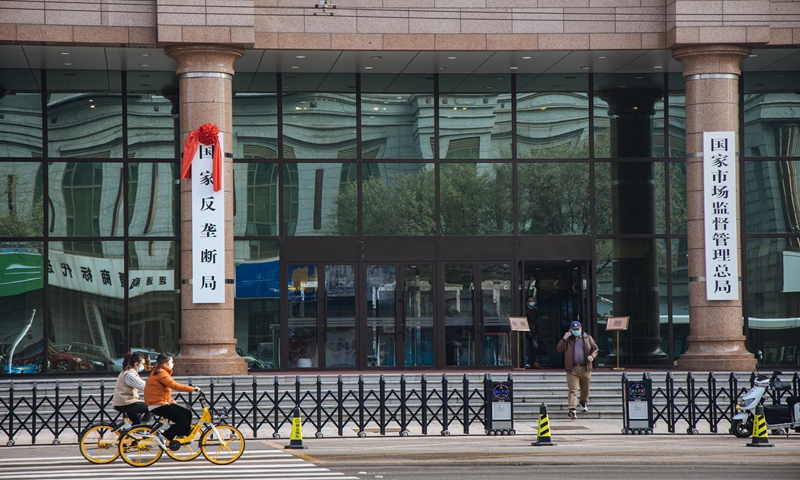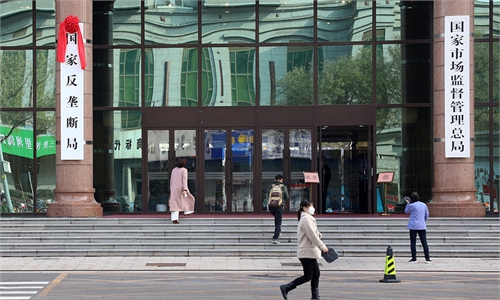
China's anti-monopoly bureau officially launches on November 18, 2021. It's located in the same building as the country's top market regulator, the State Administration of Market Regulation, in Beijing. Photo: Li Hao/GT
China’s market regulator said on Friday it had launched an antitrust investigation into leading online academic database China National Knowledge Infrastructure (CNKI). It comes amid a series of moves by China to supervise the platform economy.
The State Administration for Market Regulation published the announcement on its website on Friday without providing further details.
Tsinghua Tongfang Co, a Chinese state-owned software firm based in Beijing that is the parent company of CNKI, said it will fully comply with the investigation. The operating revenue of CNKI accounted for 6 percent of the operating revenue and 12 percent of the net profit of Tsinghua Tongfang Co in 2021.
CNKI is one of the largest Chinese academic information gateway websites. It came under fire last month when China’s top research group, the Chinese Academy of Sciences, said it would suspend its use of CNKI due to the high subscription fees.
According to the introduction on its website, the database was launched in 1999 and has over 200 million end users and over 16 million daily visits. It offers over 2 billion full-text downloads.
CNKI has over 1,600 institutional customers overseas in 60 countries and regions, in addition to 32,000 institutional customers from various industries in the Chinese mainland.
Core users include top universities, research institutes, government think-tanks, enterprises, hospitals and public libraries.
CNKI provides convenience for researchers and promotes information integration, Liu Dingding, a Beijing-based market analyst told the Global Times on Friday.
However, as it is almost the only authoritative platform for academic information, it has gained a monopolistic status in the industry in recent years, casing problems such as high subscription fees and poor user experience, Liu said.
The antitrust investigation comes after the nation’s latest pledge to carry out normalized supervision of online platform companies.
The Political Bureau of the Communist Party of China Central Committee held a meeting in April, pointing out that the platform economy must develop in a healthy way.
China's State Council in March also urged relevant departments to improve plans to govern the healthy development of the platform economy and improve its international competitiveness.
"It is expected that the special rectification of internet platforms in the past two years will extend to more sectors and industries related to the national economy so as to better unleash the vitality of the industry and better serve the public,” Liu said.

